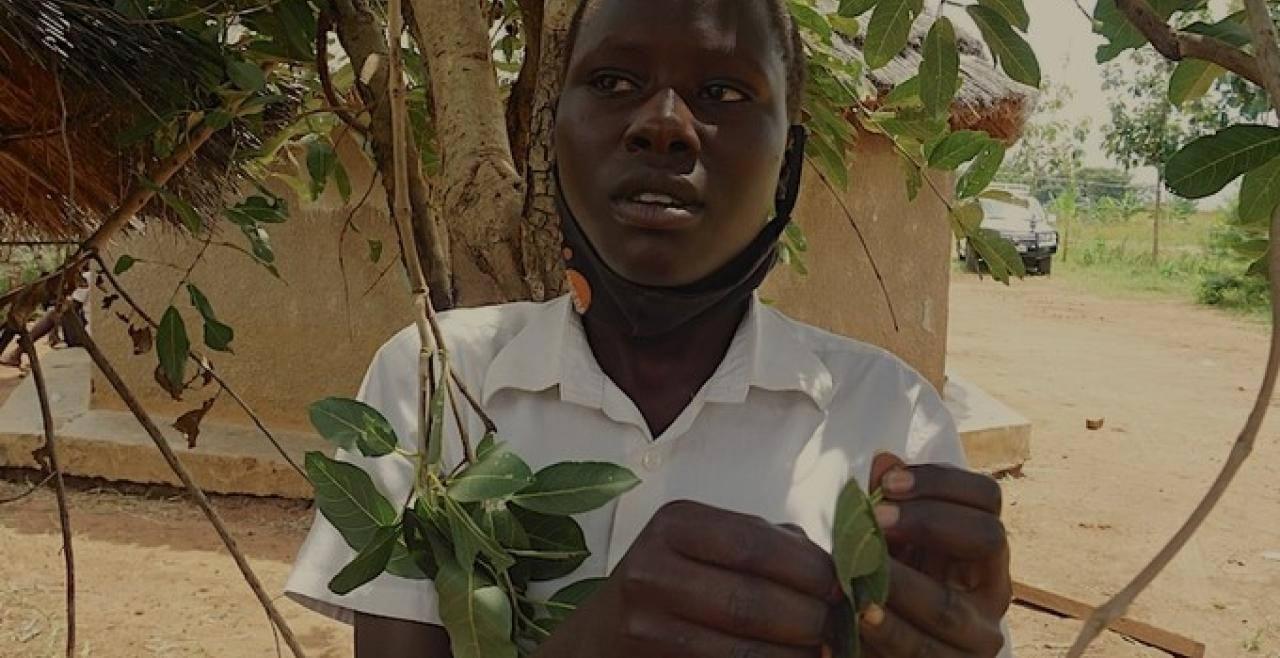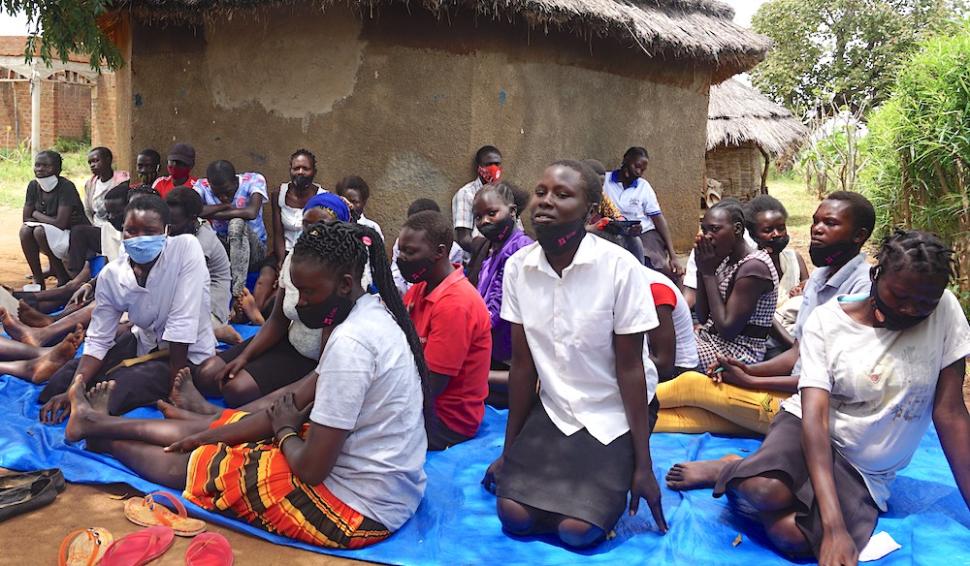Saying 'I Don't' - Girls take a stand against child marriage in Uganda

ABIM DISTRICT, Uganda – Fourteen-year-old Ruth dreams of becoming a pilot, but last year she discovered her mother's plans to marry her off to a man more than twice her age. This spelled disaster for her aspirations, as girls who marry while in school usually fall pregnant and drop out, ending their education and jeopardising their health.
“I was at home reading my books when a certain man came, and my mother welcomed him. Then she told me, ‘this is your husband’. She wanted two goats and a little money from him. But I refused,” Ruth said.
A primary five pupil and a member of the Agile Empowerment and Livelihood for Adolescent (ELA) club in Agule village, in Morulem parish in north-eastern Uganda, Ruth resisted.
“I told her I am just 14 years old and so young to get married... Besides, I need to continue with my education.” - Ruth, 14
“I told her I am just 14 years old and so young to get married. I didn’t want to get married nor pregnant and risk suffering complications of teenage pregnancies, like fistula. Besides, I need to continue with my education.”
Furious that her daughter was disobeying her, Ruth's mother sent her away from the house. Ruth found support at the home of Medesta Adero, an Agile ELA club mentor.
Just like many ELA clubs across Uganda, the Agile club empowers adolescent girls by providing them with life skills, including sexual and reproductive health information on topics such as teenage pregnancy, child marriage, menstrual hygiene, family planning and the prevention of gender-based violence. The clubs also teach livelihood skills, including financial literacy and support with business start-ups.
According to Pamella Alanyo, Programme Officer at BRAC Karamoja sub-regional office, the girls are empowered holistically, including with leadership skills.
“It is from this kind of participation that the girls build self-esteem. They are mentored to become more confident, to stand out and resist, and to speak to fellow peers, parents, and the community on the challenges that girls face when they are not protected from abuse,” she said.
At the Agile club, Ruth works to speaks to her peers in the community. “We create awareness about the dangers of child marriage, and teach other girls how to make sanitary pads, among other livelihood skills,” she said.
"Girls are mentored to become more confident, to stand out and resist, and to speak to fellow peers, parents, and the community.” - Pamella Alanyo, Programme Officer at BRAC Karamoja sub-regional office
“My dream is to become a pilot. I am going to study hard. I will be a powerful and great woman in future to fight child marriage, defilement, teenage pregnancies and gender-based violence,” she said.
In 2021, a total of 300 clubs were formed, hosting 11,000 vulnerable girls in the Karamoja sub-region. They learned livelihood skills, such as tailoring and selling household items and food. In December, 1,750 adolescent girls aged 14-24 graduated from 70 clubs across Uganda, following a 12-month empowerment programme.
The clubs are facilitated by BRAC Uganda, with support from UNFPA, and with funding from the Austrian Development Agency, Spotlight Initiative, and Swedish Embassy, under the United Nations Joint Programme on Gender-Based Violence.
Original article published on UNFPA ESARO.

